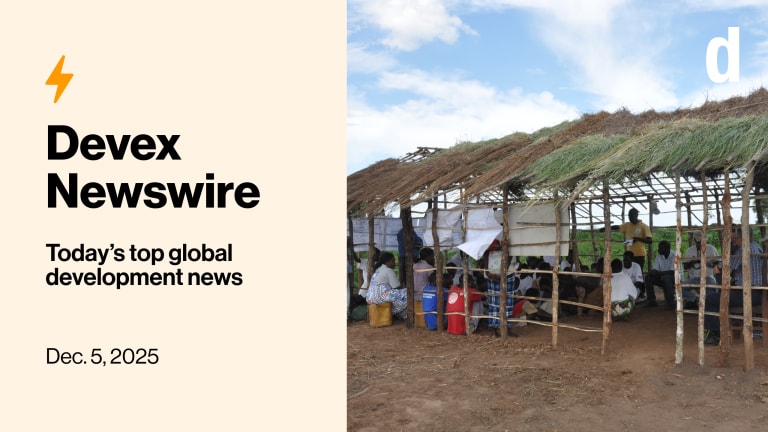Last week, a handful of human rights groups urged Myanmar's authoritarian government to release 21 aid workers imprisoned for insulting authorities a year ago. The workers had been delivering relief to some of the 2.4 million people affected by Cyclone Nargis, which struck the Irrawaddy delta in early May 2008.
Their arrest and continued detention highlights the dangers of this work. In the past few years, aid and development workers have come under increasing attack. This year, the picture has become even more grim, and the United Nations secretary-general has spoken out about the problem.
As a result, the available information and training on field security has exploded. American NGO advocacy group Interaction has tons of helpful information on its site, and has developed minimum operating security standards and best practices. Similarly, the European Interagency Security Forum, which has 49 member organizations, aims to improve the security and safety of its members and the wider humanitarian community with information and analysis, collaboration, and better management.
The European Commission Humanitarian Office provides a comprehensive, if rather bland, security guide. It offers detailed advice on how to handle a security incident.
"Managers should think through the events and consider whether there are any lessons to learn," the authors wrote. "For example, should staff be better briefed? Should procedures be adjusted? Should a particular route be avoided? Should there be better liaison with the police? Should disciplinary action be taken against any member of staff?"
The Netherlands-based nonprofit Center for Safety and Development offers security classes for individuals, organizations and country programs, and is capable of one-off consulting and tailored training.
Next week, CSD is organizing the NGO Security Conference 2009 in Amsterdam. Events will include a discussion on donor perspective and best ways to instill a culture of security within organizations.
At next month's Geneva Security Forum, debate topics will include field uses for the latest technology and optimal security for relief and post-conflict operations.
With all these tools at your disposal, if you're heading into the field, soon you need not go unprepared.








